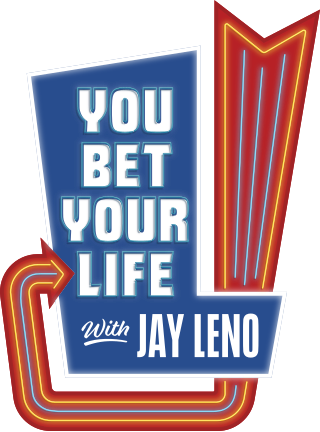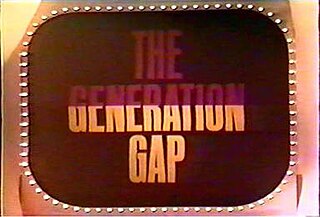Related Research Articles

A game show is a genre of broadcast viewing entertainment where contestants compete in a game for rewards. The shows are typically directed by a host, who explains the rules of the program as well as commentating and narrating where necessary. The history of the game shows dates back to the late 1930s when both radio and television game shows were broadcast. The genre became popular in the United States in the 1950s, becoming a regular feature of daytime television.

Card Sharks is an American television game show. It was created by Chester Feldman for Mark Goodson-Bill Todman Productions. Contestants attempt to predict the outcome of survey questions to gain control of a row of oversized playing cards, then determine whether the next card drawn is higher or lower. The title Card Sharks is a play on the term "card sharp", a person skilled at card games.

The Newlywed Game is an American television game show. Newly married couples compete against each other in a series of revealing question rounds to determine how well the spouses know or do not know each other. The program, originally created by Robert "Nick" Nicholson and E. Roger Muir and produced by Chuck Barris, has appeared in many different versions since its 1966 debut. The show became famous for some of the arguments that couples had over incorrect answers in the form of mistaken predictions, and it even led to some divorces.
To Tell the Truth is an American television panel show. Four celebrity panelists are presented with three contestants and must identify which is the "central character" whose unusual occupation or experience has been read aloud by the show's host. When the panelists question the contestants, the two impostors may lie whereas the "central character" must tell the truth. The setup adds the impostor element to the format of What's My Line? and I've Got a Secret.

Beat the Clock is an American television game show. Contestants attempted to complete challenges such as physical stunts within a time limit in order to win prizes. The show was a creation of Mark Goodson-Bill Todman Productions.

Fear Factor is an American stunt/dare game show that first aired on NBC from 2001 to 2006 and was initially hosted by comedian and UFC commentator Joe Rogan. The show was adapted by Endemol USA from the original Dutch series titled Now or Neverland.

Password is an American television game show. Two teams, each composed of a celebrity and contestant, attempt to convey mystery words to each other using only single-word clues, in order to win cash prizes.

Truth or Consequences was an American game show originally hosted on NBC radio by Ralph Edwards (1940–57) and later on television by Edwards (1950–54), Jack Bailey (1954–56), Bob Barker (1956–75), Steve Dunne (1957–58), Bob Hilton (1977–78) and Larry Anderson (1987–88). The television show ran on CBS, NBC and also in syndication. The premise of the show was to mix the original quiz element of game shows with wacky stunts.

Play Your Cards Right is a British television game show based on, and played similarly to, the American show Card Sharks.

You Bet Your Life is an American comedy quiz series that has aired on both radio and television. The original version was hosted by Groucho Marx of the Marx Brothers, with announcer and sidekick George Fenneman. The show debuted on ABC Radio on October 27, 1947, moved to CBS Radio debuting October 5, 1949, and went to NBC-TV and NBC Radio on October 4, 1950. Because of its simple format, it was possible to broadcast the show on both radio and television but not simultaneously. Many of the laughs on the television show were evoked by Groucho's facial reactions and other visual gimmicks. So the two versions were slightly different. The last episode in a radio format aired on June 10, 1960. The series continued on television for another year, recording the last season, beginning on September 22, 1960, with a new title, The Groucho Show.
Double Talk is an American game show that aired on the ABC network from August 18 to December 19, 1986. The show was a Bob Stewart-produced word game which borrowed elements from Stewart's previous show Shoot for the Stars and his then-current editions of Pyramid.
You Bet! is a British game show, based on the German series Wetten, dass..?, that aired on ITV between 20 February 1988 and 12 April 1997, initially hosted by Bruce Forsyth from 1988 to 1990, then by Matthew Kelly from 1991 to 1995 and finally by Darren Day from 1996 to 1997.
The Who, What, or Where Game is an American television game show that was broadcast weekdays on NBC from December 29, 1969, to January 4, 1974. The host was Art James, and the announcer was Mike Darow; Ron Greenberg packaged the show, which was recorded in NBC studios 6A and 8H in Rockefeller Plaza in New York City.
I Bet You Will is an Internet webcast, and later a show on MTV, that paid people to do outrageous things for money. In 2008, reruns of the program began to air on Spike. It was created by Morgan Spurlock. The show was hosted by Spurlock, musician/TV host/model Willa Ford, musician Jive Jones, comedian Godfrey, and Hescher.
Celebrity Sweepstakes is an American television game show that aired on NBC's daytime schedule from April 1, 1974, to October 1, 1976. The show also had two separate weekly syndicated runs from September 9, 1974, to September 1975 and again from September 20, 1976, to May 23, 1977.

The Generation Gap is a primetime American game show that aired from February 7 to May 23, 1969, on ABC. It was originally hosted by Dennis Wholey, who was replaced by Jack Barry after ten episodes had aired. Fred Foy announced during the entire run.
Wanna Bet? is an American game show based on the German series Wetten, dass..?, which aired on ABC in 2008. It featured four celebrities making wagers on whether ordinary Americans will be able to complete outrageous stunts. The format first aired as a one-time special on CBS in 1993, with Gordon Elliott and Mark McEwen hosting.
The third season of the Australian version of The Mole took place mostly in Gold Coast, Queensland and was hosted by Grant Bowler.
Series 2 of the British reality game show The Mole was released in 2001, took place in Canada, and was also hosted by Glenn Hugill.
References
- ↑ Hadleigh, Boze (2023-05-01). Game Show Confidential: The Story of an American Obsession. Rowman & Littlefield. ISBN 978-1-4930-7259-0.